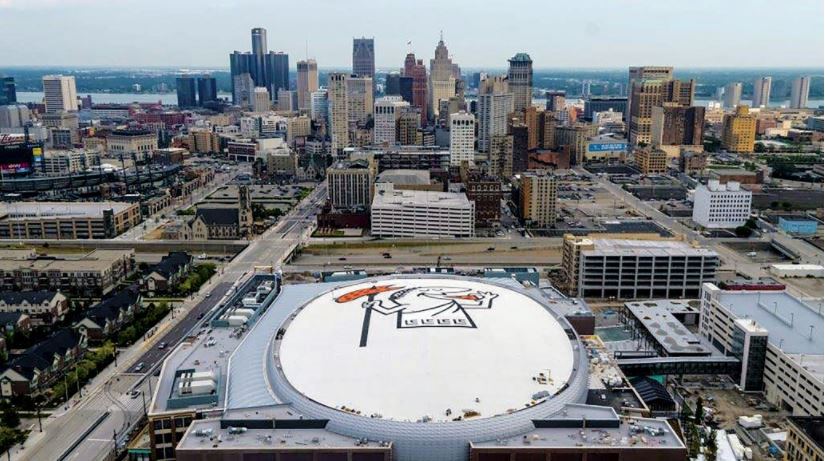The Ilitch family’s dream to build a new downtown Detroit, Michigan home for their Detroit Red Wings hockey team has been a quarter century in the making.
The ambition finally became reality on September 12, 2017 when Little Caesars Arena opens. The $863 million project — a 20,000-seat state-of-the-art arena anchoring 12 acres of mixed-use buildings and a parking garage — is the centerpiece of The District Detroit, the family’s wider $2 billion, 50-city-block development plan.
How did they pull it off amid the chaos? The chaos was key. The tumult in many ways helped smooth the way for the sweeping downtown development plans by the Ilitch family (and fellow Detroit billionaire Dan Gilbert).
“It’s not surprising they were able to do what’s necessary, to acquire property under the radar in a period of turbulence,” said Robin Boyle, professor and chairman of Wayne State University‘s department of Urban Studies and Planning. “The focus of government in Detroit was to keep the lights on, to overcome the chaos we were going through. (Ilitch and Gilbert) were able to do it without a great deal of interference. These two companies benefited from the chaos that existed (at) the time.”
With one mayor in prison followed by a succession of three more in office and then an emergency manager appointed by the governor, Detroit city government wasn’t able to scrutinize wealthy businessmen’s plans too closely. Politicians saw new investment as a tonic for a city under scrutiny after decades of problems and decline.
In July 2014, the Ilitches made public their far wider District Detroit plan of 50 city blocks remade with new investment. They paid University of Michigan professor Mark Rosentraub for a report that estimated the mammoth arena project would create 8,300 construction jobs and 1,100 permanent jobs, along with $1.8 billion in economic impact for the city, region and state.
Decades of academic study nationally, however, cast doubt on the economic sense of public subsidies for sports stadiums.
Such caution didn’t affect the political will to give Olympia the money it sought. The promise of developing a blighted section of the city was irresistible.
REVITALIZATION thanks Robin West Smith for bringing this article to our attention.
Photo courtesy of Olympia Development.

